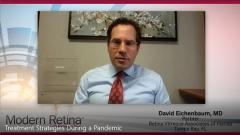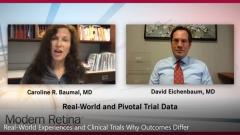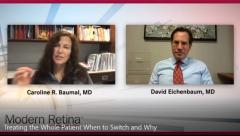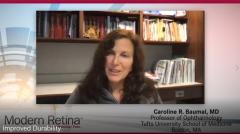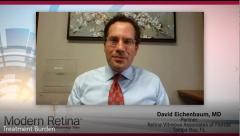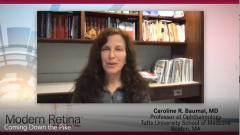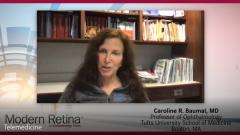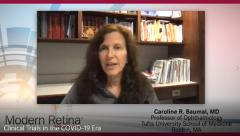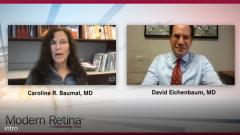
Clinical Trials in the COVID-19 Era
Episodes in this series

Caroline R. Baumal, MD: David, I know that you're an investigator in many trials. How has the recent COVID-19 pandemic affected the ability of your patients to come in for their study visits, and new studies that we're going to be enrolling patients, or things you're going to get started on? Can you tell me a little bit about that?
David Eichenbaum, MD: Yes, it's a great question, super topical right now. I'm fortunate that the majority of our study subjects have come in for the majority of their visits, which is good. The rub is that the ones who wouldn't come in or couldn't come in are providing incomplete data. We are doing partial visits by telephone for them, but there’s a very limited number of assessments you can do when a subject just can't or won’t show up. That proportion is probably different between a site in an area that's less than affected and a site in an area that's more affected like Manhattan.
The other thing that's disappointing about clinical science right now — but it's completely understandable — is that the enrollment for a lot of studies has been paused. Some of the things we were hoping to get done are going to take a little while longer, maybe 3 to 6 months, which isn't really super impactful, but capturing the data from the ongoing studies when there is this gap in the completeness and the integrity of the data may be something that affects how we interpret the results of them, depending upon what that degree of gap is. How about your experience? What's your experience in your randomized controlled trials?
Dr. Baumal: We're in Boston, we’re close to New York. We’re on the Eastern seaboard, and there's been a lot of cases here. I think that a lot of our patients are concerned about coming to Boston, especially to our office which is a medical building associated with the hospital. Even though we're not directly in the hospital, patients are just afraid, really, to go to anything that's in a hospital setting, and that's where our study center is. Our experience has been that quite a few patients have not wanted to come for their study visits.
I think that all of the companies have been very reasonable with this in cutting down the patient appointments, so a study visit isn't 1 to 2 hours anymore or it's abbreviated with as little imaging as possible just so the patient can have their treatments. One image, the ETDRS vision even sometimes is omitted because, really, the most important thing is that they get their treatment and continue on, but everything is so important in studies. When we see all the papers that have been written from all the anti-VEGFs that have been approved, hundreds of papers from every study looking at vision and OCT, and all the findings at every time point, I think we're going to miss out on some of the data.
And of course, patients enroll in studies in different times so it's going to affect many different time points. I mean, it’s necessary, and I think that it's the right thing to do. All of the companies did change their protocols and change things for what was best for patients, but it's going to affect our ability to interpret the data on these multimillion dollar studies that are so heavily an investment for our future treatments.
Dr. Eichenbaum: Fortunately, I'm hopeful that the primary endpoints won’t be drastically affected—because you said the patients randomize at different time points throughout the randomization period. There will be a couple of patients at key time points where we assess for primary endpoint or key secondary endpoints that are affected from this net data may be or will be omitted in that proportion of patients, but because we have this span of time of enrollment, I'm hopeful that we'll still have meaningful data from the ongoing trials right now. It'll be really interesting to see, as you state, what we can pull out as fact with the missing pieces of data.
Caroline R. Baumal, MD: Hello and welcome to this discussion presented by Modern Retina and Ophthalmology Times titled, “Treating Age-Related Macular Degeneration in 2020. I'm Dr. Caroline Baumal. I'm a Professor of Ophthalmology at Tufts University School of Medicine in Boston. Please welcome—okay.
Please join me in welcoming my colleague, and not only my colleague but an ex-fellow from Tufts and a good friend of mine, Dr. David Eichenbaum, who is currently a partner at Retina Vitreous Associates of Florida in Tampa Bay. In today's discussion we'll talk about available therapies and some that are still in development as well as practical considerations in treatment of wet AMD during the post-pandemic era.
Newsletter
Keep your retina practice on the forefront—subscribe for expert analysis and emerging trends in retinal disease management.

